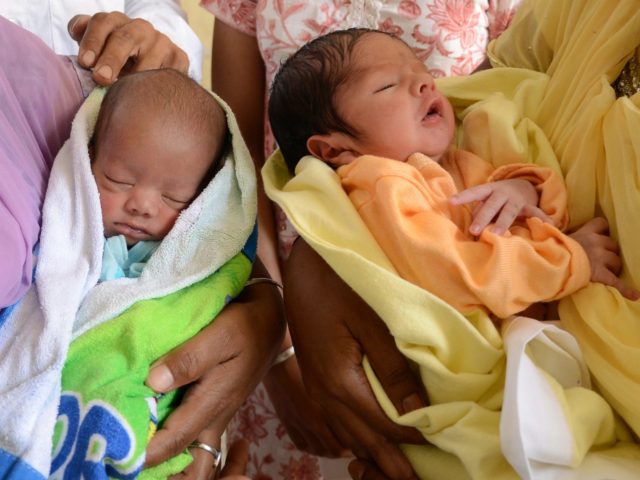An Indian lawmaker recently proposed implementing population control methods throughout India, notably a two-child policy “based on the model of China,” the South China Morning Post (SCMP) reported on Tuesday.
India’s health ministry submitted an affidavit to the nation’s Supreme Court on December 12 explaining that New Delhi opposes forced family planning. The submission was made in response to public interest litigation (PIL) filed earlier by Ashwini Upadhyay, a lawyer and leader of India’s ruling, Hindu Nationalist Bharatiya Janata Party (BJP).
Upadhyay pleaded in the PIL that India urgently needs “a population-control law, based on the model of China … to have good health; social, economic and political justice; liberty of thoughts, expression and belief, faith and worship; and equality of status and opportunity,” according to the SCMP.
“Prescribing a two-child norm per family as a criterion for government jobs, aids and subsidies, Upadhyay’s PIL recommended that the state withdraw statutory rights – the right to vote, the right to run in elections, the right to property, the right to free shelter and the right to free legal aid – for those not complying with it,” according to the newspaper.
Responding to the PIL earlier this month, India’s Ministry of Health and Family Welfare reinforced its opposition to any state coercion in family planning.
“In fact, international experience shows that any coercion to have a certain number of children is counter-productive and leads to demographic distortions,” the ministry said, referring to China’s infamous one-child policy from 1979-2015.
Upadhyay’s PIL argued that the Indian federal government would be unable to fulfill Indian citizens’ constitutional rights to “clean air, drinking water, health, peaceful sleep, shelter, livelihood, and education guaranteed under Articles 21 and 21A of the Constitution” without controlling India’s alleged “population explosion.”
Upadhyay also claimed that roughly 20 percent of people residing in India do not have official identification numbers, known as Aadhaar in India, and therefore were unaccounted for. He specifically noted the “crores [tens of millions] of Rohingyas and Bangladeshis living illegally in the country,” according to the Hindustan Times.
The PIL further argued that India’s alleged “population explosion is also the root cause of corruption” in the country and that it likewise served as a “contributory factor behind heinous crimes like rape and domestic violence,” according to the newspaper.
Critics of India’s ruling BJP have denounced Upadhyay’s PIL, and similar proposals by other BJP leaders over the past few years, as part of the Hindu nationalist party’s alleged conspiracy to prevent Indian Muslims from enacting demographic change on India’s majority Hindu population.
“India … is expected have 311 million Muslims in 2050 (11 percent of the global total), making it the country with the largest population of Muslims in the world,” Pew Research Center reported in 2015. India’s last national census took place in 2011; its 2021 census may be postponed until 2022 due to the ongoing Chinese coronavirus pandemic.
“Muslims are expected to grow faster than Hindus because they have the youngest median age and the highest fertility rates among major religious groups in India,” Pew explained.
“In 2010, the median age of Indian Muslims was 22, compared with 26 for Hindus and 28 for Christians. Likewise, Muslim women have an average of 3.2 children per woman, compared with 2.5 for Hindus and 2.3 for Christians,” according to the research center.
“Due to these factors, India’s Muslim community will expand faster than its Hindu population, rising from 14.4 percent in 2010 to 18.4 percent in 2050,” Pew predicted.
India’s population of 1.37 billion people represents one-sixth of humanity and is second only to China’s population of 1.4 billion.
The population of India is expected to surpass that of China in the coming years, meaning New Delhi may need to implement population controls despite the current hostility toward such proposals, a senior BJP official who spoke on condition of anonymity told the SCMP on Tuesday.
“It is statistically proven that India is poised to become the world’s most populous nation, surpassing China. It is also a no-brainer that as a developing country, this will put a tremendous strain on our limited resources, triggering joblessness, pollution and a slide in human development rankings,” he said.
“Who can dispute that in such a scenario, population control can help avert an economic and demographic disaster?” the official asked.

COMMENTS
Please let us know if you're having issues with commenting.